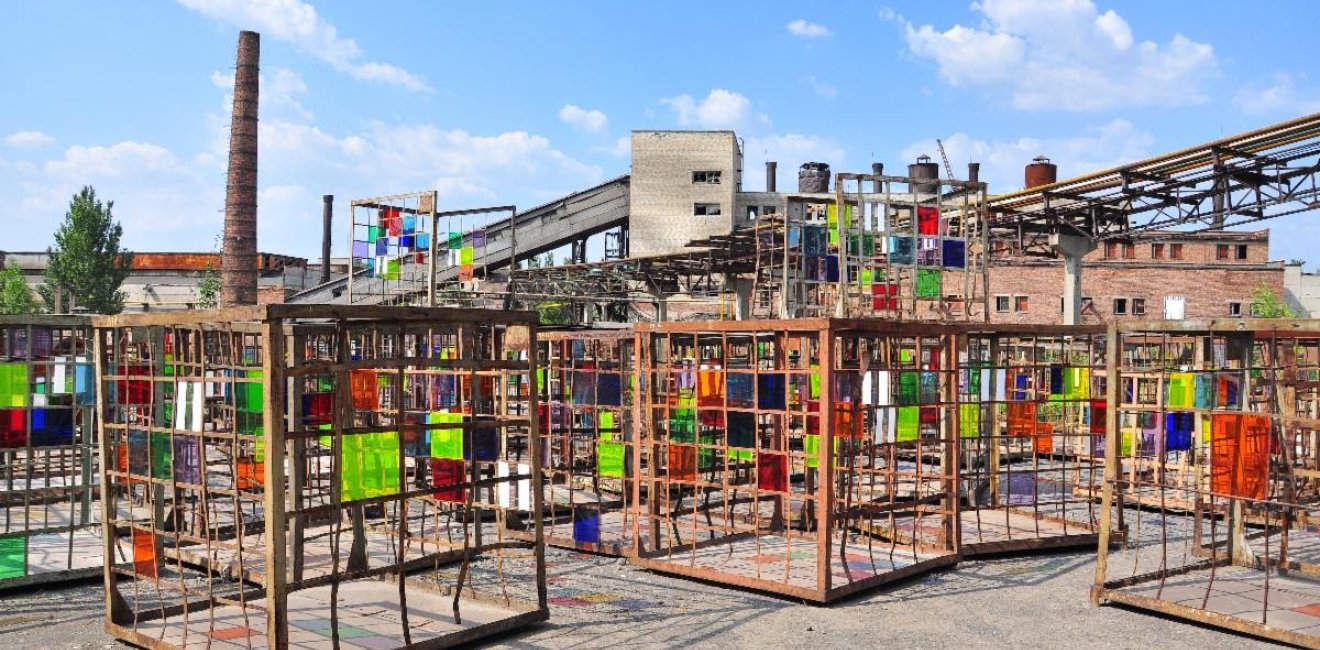
A blog of the Kennan Institute
Ukraine's decolonial processes entered an active phase with the full-scale invasion by Russia in February 2022, following eight years of partial occupation and hybrid warfare. While the Orange Revolution in 2004 and the Euromaidan in 2014 were initial attempts to challenge a profoundly pro-Russian political and cultural entanglement, the struggle intensified during the anticolonial resistance to the Russian invasion.
The wartime context in Ukraine led to what I propose to call “swift” decolonization, needed for survival in the face of aggression. This process differs from “slow” decolonization, which occurs in less urgent situations and entails the reconsideration of traumatic historical narratives, a process that was widely present in Ukraine before the onset of Russia’s direct aggression. Ukraine's current “radical” decolonization is a means of endurance and sustainable development amid adverse conditions.
Such an intensified decolonization process shouldn’t be reduced to a mere erasure of colonial references. It should go larger in its scale and ambition to guarantee profound cultural changes. Decolonizing Ukrainian culture requires an institutional transformation that rearranges systems affected by the war's destruction and permits a reconsideration of historically contested narratives and the establishment of new epistemological foundations through the active cultural production of new narratives. Such a sustainable institutional system facilitates internal and external exchanges and resists the destructive impact of the war. Ukrainian cultural institutions at all levels, including private initiatives, NGOs, and public institutions, play a significant role in the decolonization of culture by dismantling postcolonial narratives and creating new ones that break with Russia's imperial legacy.
My recent research has focused on three trends in the decolonial processes going on in Ukraine: how organizations displaced from the occupied territories are helping shift center-periphery dichotomies; the contribution of grassroots initiatives to the support of displaced artists, and the resulting dissolution of cultural regionalism through cultural exchange; and the contribution of public institutions to the production of new narratives in a time of war.
Rethinking Center-Periphery Dichotomies
Russia’s war caused the displacement of cultural organizations from the east and south of Ukraine following the violent destruction or seizure of their venues. One example is the Izolyatsia Platform for Cultural Initiatives, a contemporary art center founded in Donetsk in 2010. When Russia-backed militants took control of Donetsk in 2014, the premises of Izolyatsia were seized, looted, and turned into an illegal political prison. The center's team fled to Kyiv, rescuing only part of Izolyatsia’s art collection. The focus of their work thereafter shifted from regional development to providing a platform for displaced artists to express themselves, and to documenting and interpreting the destruction in the east of the country, with a particular focus on the intersection of art, politics, and ecology.
Another example is provided by Platform Tu, a grassroots independent space that was founded in Mariupol in 2015 by displaced cultural activists from Donetsk. Platform Tu played a vital role in cultural resistance on the border with Russia. The organization worked to introduce contemporary culture and art to the local community and aimed to revitalize the cultural scene by challenging the post-Soviet context of the region. However, in 2022, with the genocidal destruction of Mariupol by Russia, the organizers had to flee again and continue their work primarily on the archive of the war, with a project, “Memoriupol,” formed to gather stories of the survivors from the now occupied city.
These two examples show how the displacement of organizations, apart from the obvious negative effects, brings previously peripheral perspectives to the center of public attention and contributes to challenging center-periphery hierarchies in culture.
Dissolving Cultural Regionalism through Cultural Exchange
Ukraine's cultural regionalism, an artificial construct fostered by Ukrainian electoral manipulations since the 1990s and challenged by the Euromaidan protests, has been further dissolving amid resistance to the war. Art residencies in the west of Ukraine have played a significant role in this process. To name but a few, grassroots initiatives such as Working Room and Sorry, No Rooms Available have provided support and exchange opportunities for artists displaced by military aggression and have fostered a dialogue between discrepant art scenes, overcoming politically imposed divisions.
The Working Room art residency, spread across several regions in western Ukraine, has hosted seventeen artists since the war's escalation. It aims to decentralize cultural production, countering the remnants of disintegrating regionalism and fostering artistic production of new narratives reflecting on decolonial expression and constituting a memory of the war. Similarly, Sorry, No Rooms Available in Uzhhorod attends to decentralizing cultural development. After the 2022 invasion, the focus of the residency shifted to projects reflecting on war, violence, and historical memory. The residency has extensively collaborated with artists from the occupied south of the country, amplifying their voices and fostering exchange.
Moving art production from war-affected territories has prompted structural changes that have allowed artists to convey their traumatic experiences to a wider audience. It has facilitated dialogue between regional art scenes and prompted an epistemological shift by exchanging experiences of the war with less affected areas. These efforts have created a new epistemic basis for the decolonization of art production.
The Role of Public Institutions in Creating New Narratives
Public art institutions are experiencing significant transformations in their work as they adopt new modes of collaboration with nongovernmental initiatives and explore new exhibition strategies. For example, the Bohdan and Varvara Khanenko Museum in Kyiv, which possesses rich collections of Western European and Oriental art, had to evacuate its holdings owing to threats of Russian aggression—in October 2022 a missile strike near the museum caused damage to the building and heightened concerns about preserving the national heritage.
To address the impact of war on artistic discourse and the museum itself, in March 2023, the museum organized the contemporary art exhibition Meanwhile, in the Khanenko House, in collaboration with a nonprofit organization, Ukraine’s Museum of Contemporary Art (MOCA NGO). The exhibition aimed to depict the museum as an empty space, stripped of its exhibits and repurposed to highlight reflections on the danger it faced. Nine contemporary artists presented site-specific works amid empty frames and display cases, focusing on mundane, small-scale stories about individual everyday objects and people's lives in wartime.
The exhibition showcased how war distorts artistic discourse, directing attention to the necessities of survival rather than aesthetic appreciation. It depicted the museum as a “non-place,” existing “in the meantime” of war action, while also serving as a poignant artifact of the atrocity and trauma caused by the Russian invasion. By problematizing the role of a war archive, the exhibition sought to bring together scattered elements to form a new coherent narrative, a new, disentangled history of Ukrainian society, in this way contributing to Ukraine's decolonization efforts.
Disentangling Histories
Ukrainian resistance to the invasion has had a profound impact on the cultural sector, leading to institutional transformation and fostering decolonization processes. Decolonization in Ukraine is an ongoing process of disentanglement from colonial and postcolonial narratives that has reshaped the cultural sphere at all levels, from individual efforts to public institutions. It relies on the amplified production of new discourses that address cultural and social identities emerging from the experiences of the war. The trends in institutional change outlined here are of major importance as the reconstruction of Ukraine after the war will hinge on the effectiveness of the institutional structure and its capacity to sustain itself and engage in cultural exchange. Dissolving Russian colonial narratives and establishing a strategy for decolonial knowledge production is essential in these conditions, and institutional transformation contributes to this decolonial change.
The opinions expressed in this article are those solely of the author and do not reflect the views of the Kennan Institute.
Author


Kennan Institute
The Kennan Institute is the premier US center for advanced research on Eurasia and the oldest and largest regional program at the Woodrow Wilson International Center for Scholars. The Kennan Institute is committed to improving American understanding of Russia, Ukraine, Central Asia, the South Caucasus, and the surrounding region through research and exchange. Read more

Explore More in Focus Ukraine
Browse Focus Ukraine
Talking to the Dead to Heal the Living

Ukrainian Issue in Polish Elections


